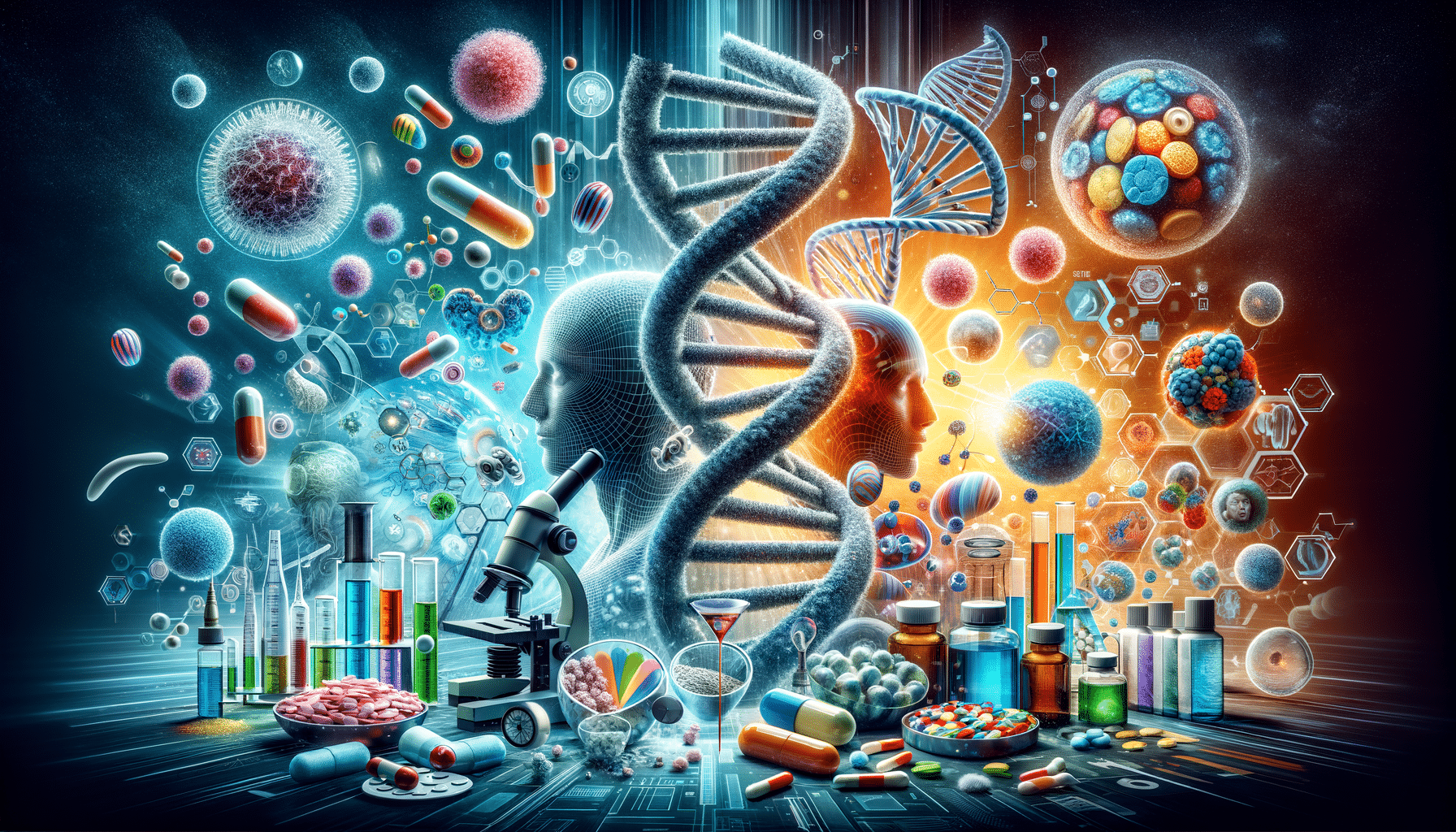Introduction to Genetic Engineering
Genetic engineering stands at the forefront of modern science, offering revolutionary possibilities in medicine and beyond. By altering the genetic material of organisms, scientists can develop new treatments and enhance existing ones, making them safer and more effective. This technology holds the potential to transform healthcare, agriculture, and even the environment, making it a subject of immense importance and relevance today.
The Role of Genetic Engineering in Medicine
In the realm of medicine, genetic engineering is a pivotal tool used to innovate and improve treatment options. By manipulating DNA, scientists can create targeted therapies that address the root cause of diseases. For instance, genetic engineering has been instrumental in the development of insulin for diabetes treatment, where human genes are inserted into bacteria to produce insulin on a large scale.
Moreover, genetic engineering is crucial in the field of gene therapy, where defective genes are replaced or repaired to treat genetic disorders. This approach has shown promise in conditions such as cystic fibrosis and muscular dystrophy, offering hope to patients with previously untreatable diseases. The precision and specificity of genetic engineering make it a powerful tool in personalized medicine, allowing treatments to be tailored to an individual’s genetic makeup.
Advancements in Genetic Engineering Technologies
Recent advancements in genetic engineering technologies have further expanded its applications and efficiency. CRISPR-Cas9, a groundbreaking gene-editing tool, has revolutionized the field by allowing precise and easy modification of DNA. This technology has accelerated research and development in genetic engineering, enabling scientists to explore new possibilities in treating diseases.
CRISPR-Cas9 works by using a guide RNA to locate specific DNA sequences, which are then cut and modified. This method is not only faster and more accurate than previous techniques but also more cost-effective. The potential applications of CRISPR are vast, ranging from correcting genetic mutations to enhancing immune responses against diseases like cancer.
Ethical Considerations in Genetic Engineering
While genetic engineering offers numerous benefits, it also raises important ethical considerations. The ability to alter human genetics prompts questions about the implications of such changes, particularly concerning germline editing, which affects future generations. Ethical debates focus on the potential for unintended consequences, such as off-target effects and the creation of genetic inequalities.
Moreover, the prospect of designer babies, where genetic traits are selected to enhance physical or intellectual attributes, raises concerns about social and moral implications. It is crucial to navigate these ethical challenges carefully, ensuring that genetic engineering is used responsibly and equitably, with regulations in place to prevent misuse.
The Future of Genetic Engineering in Medicine
The future of genetic engineering in medicine is promising, with ongoing research and development paving the way for innovative treatments. As our understanding of genetics deepens, the potential to cure genetic disorders and improve health outcomes continues to grow. Researchers are exploring the use of genetic engineering to develop vaccines, enhance drug efficacy, and even combat antibiotic resistance.
In the coming years, genetic engineering is expected to play a crucial role in addressing global health challenges, such as pandemics and chronic diseases. By harnessing the power of genetic engineering, scientists aim to create a healthier future, where diseases can be prevented or effectively managed through precise and personalized interventions.
Conclusion: The Impact of Genetic Engineering on Medicine
Genetic engineering is a transformative force in medicine, offering new avenues for treatment and prevention of diseases. By altering DNA, scientists can create more effective and safer therapies, revolutionizing healthcare. However, it is essential to address the ethical considerations and ensure responsible use of this powerful technology. As we continue to explore the potential of genetic engineering, it holds the promise of a healthier and more equitable future for all.




Leave a Reply